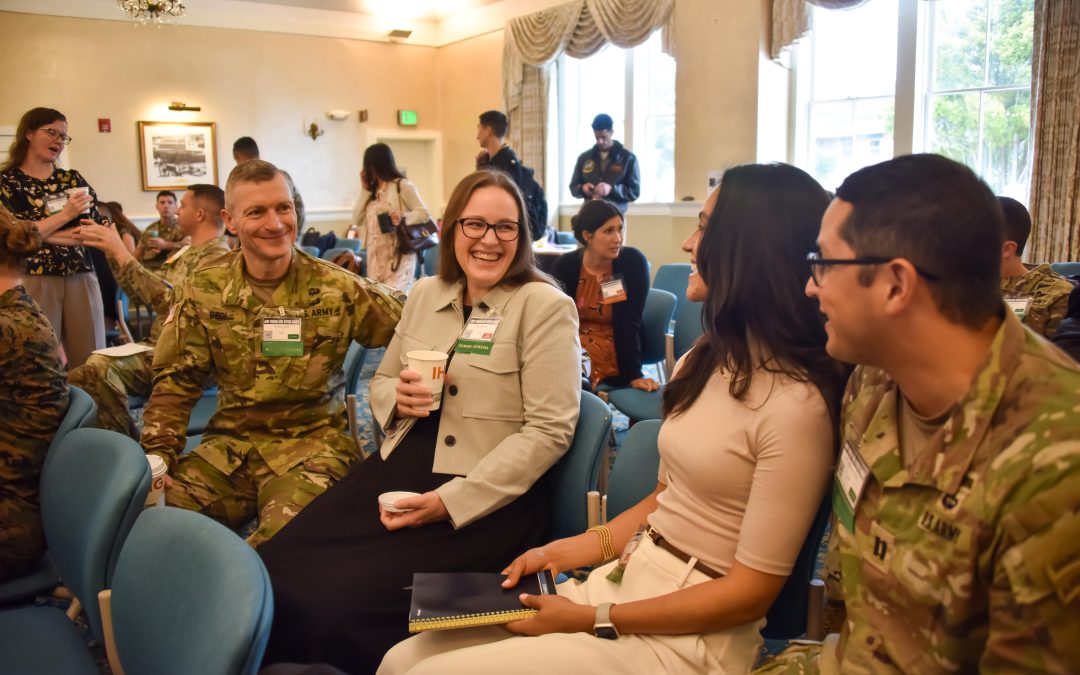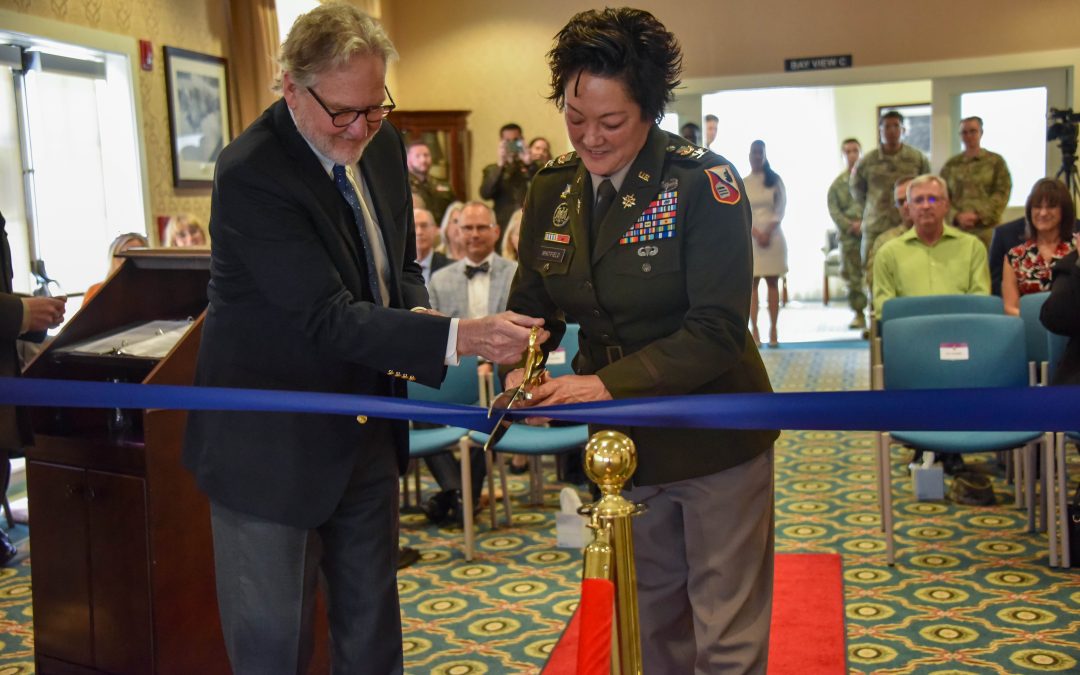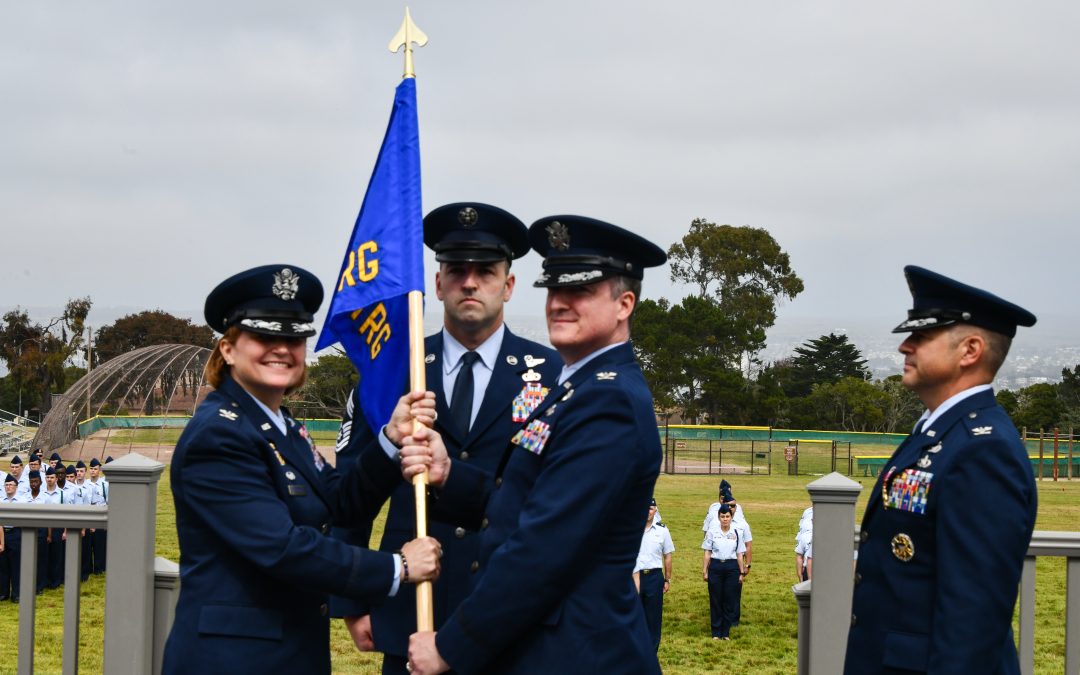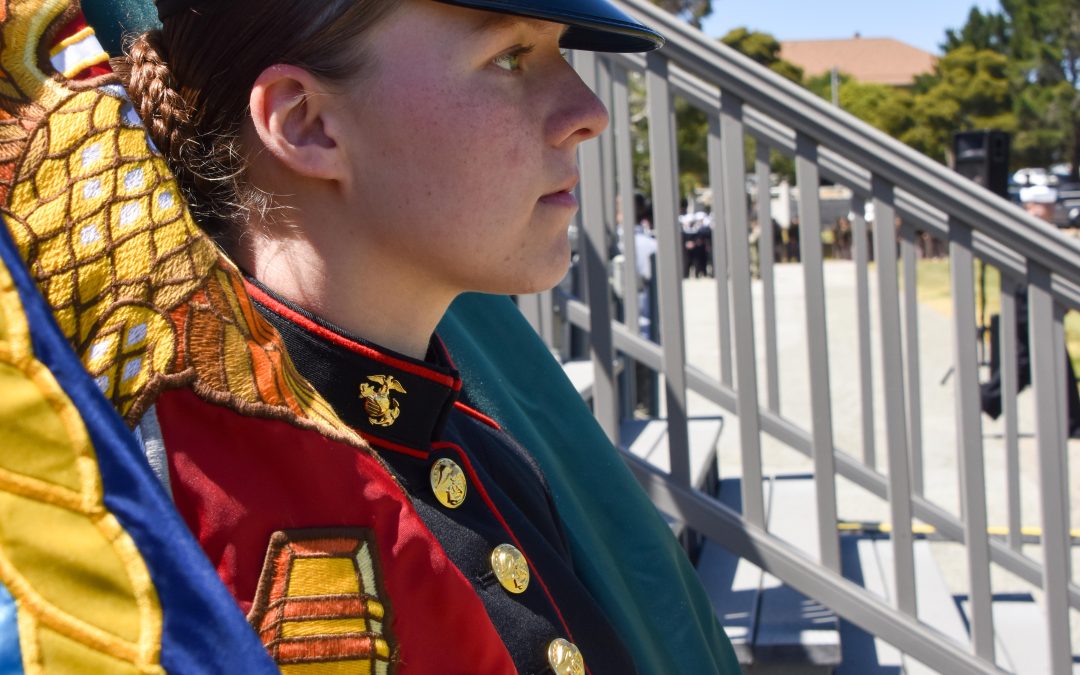By Patrick Bray
DLIFLC Public Affairs
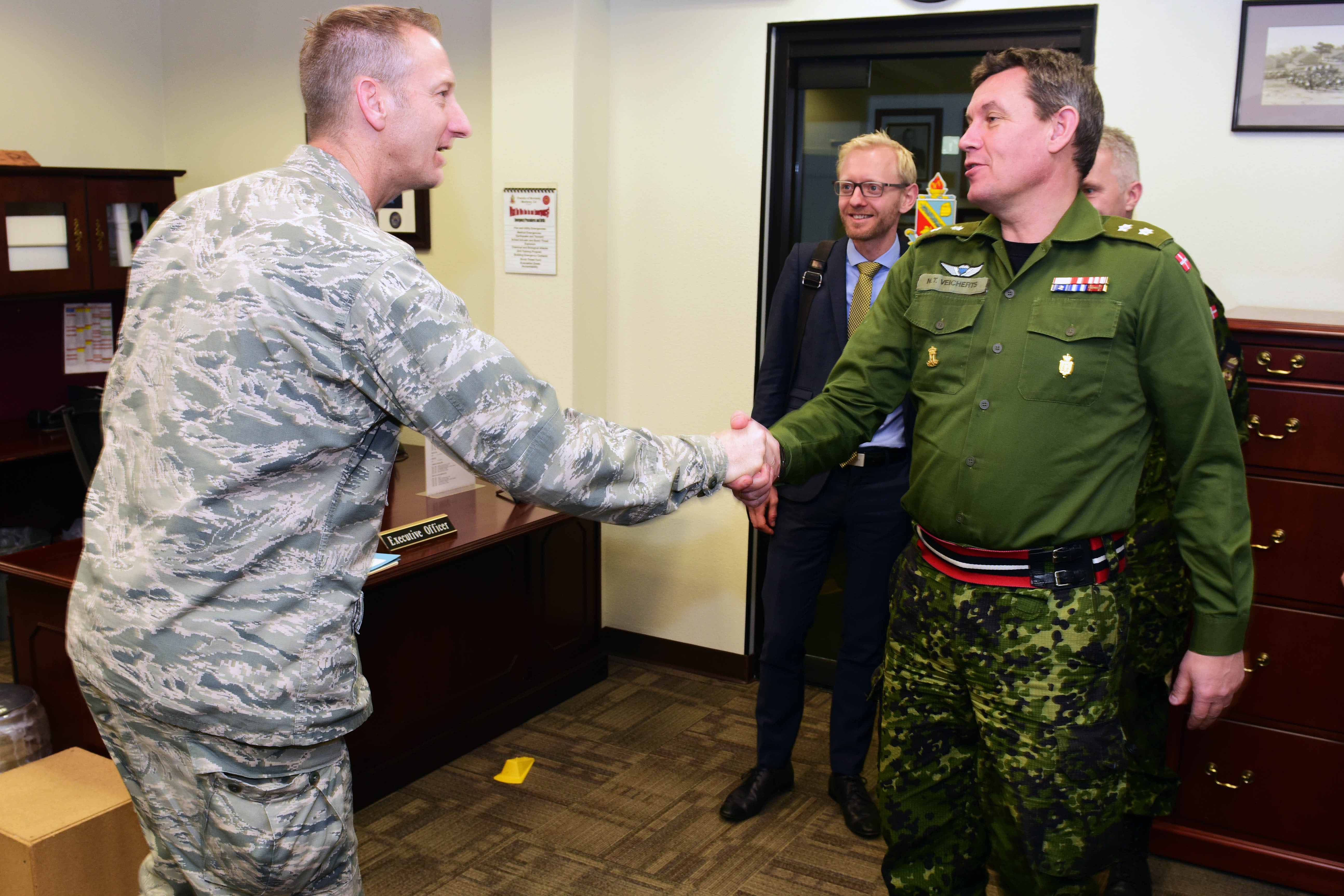
DLIFLC Assistant Commandant Col. Keith Logeman greets Danish Lt. Col. Nicolas Teodors Veicherts, the director of the Institute for Languages and Culture. Members of the Royal Danish Defence College Institute for Languages and Culture in Copenhagen, Denmark, visited the Defense Language Institute Foreign Language Center Jan. 25-27. (Photo by Patrick Bray, DLIFLC Public Affairs)
MONTEREY, Calif. – Members of the Royal Danish Defence College Institute for Languages and Culture in Copenhagen, Denmark, visited the Defense Language Institute Foreign Language Center Jan. 25-27.
The U.S. and Denmark, both NATO countries, support each other in the field of language training and education through NATO’s Bureau for International Language Coordination.
“As part of that partnership, DLIFLC helps them with teaching materials and other learning resources that they can use in their classrooms,” said Detlev Kesten, associate provost for academic support at DLIFLC.
Kesten said that the Danes plan to send about half a dozen students to attend the DLIFLC Dari Basic course this summer. This will be the first time students from Denmark have attended DLIFLC since 2013.
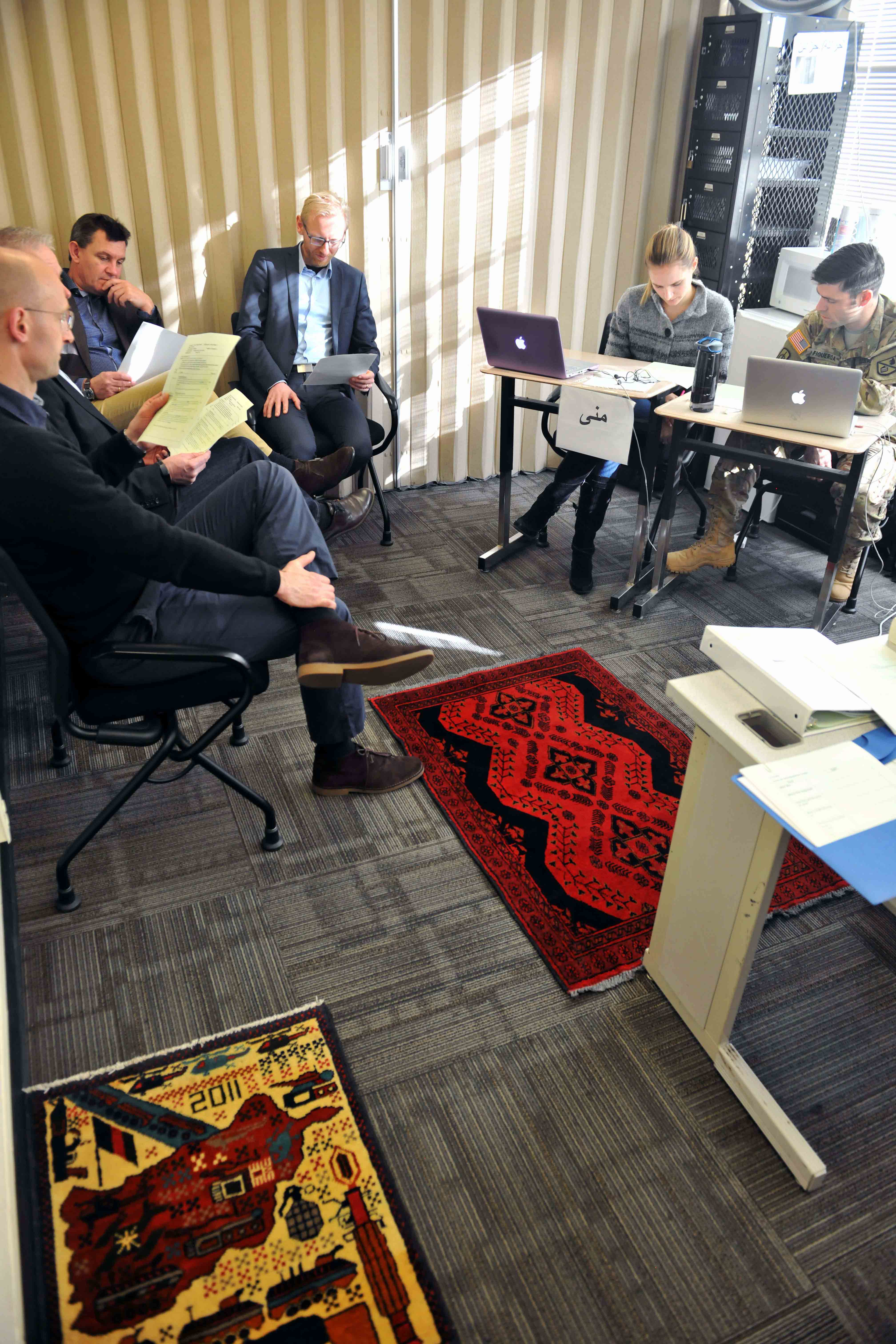
Members of the Royal Danish Defence College Institute for Languages and Culture in Copenhagen, Denmark, visited an Arabic classroom at the Defense Language Institute Foreign Language Center Jan. 27. (Photo by Patrick Bray, DLIFLC Public Affairs)
Though the Danish military has modeled some of DLIFLC’s best practices in teaching, nothing can replace the highly skilled native-born instructors who teach at the institute in Monterey. From 2007 to 2013 nearly 40 Danish students graduated from the 47-week Dari and Pashto courses.
During the visit, the Danish delegation learned about DLIFLC’s teaching methods, use of technology in the classroom and testing methods, as they visited the institute’s Continuing Education Directorate Jan. 26. They observed an Arabic and Pashto class Jan. 27.
The Danish military’s language school conducts a two-year military linguist program in Arabic, Russian and Persian, and is also responsible for English and French language instruction for Danish cadets and officers.
DIFLC provides resident instruction in 23 languages with the capacity to instruct another 65 in Washington, D.C., graduating more than 200,000 linguists since 1941.

